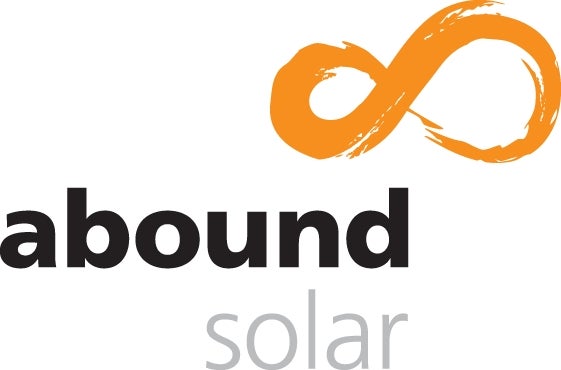Chinese government subsidies—as much as $35 billion—were responsible for the downfall of Abound Solar, not a flawed federal government loan-approval process, according to testimony delivered before the House Oversight and Government Reform Committee today.
Executives from the bankrupt solar panel manufacturer pointed to predatory pricing by Chinese solar companies underwritten by the Chinese government subsidies as the reason for the Colorado firm’s failure. But questions of sound decision-making in granting the sizable loans and allegations of political pressure applied to hasten their approval went unresolved during the hearing.
Craig Witsoe, Abound’s former CEO, told committee members in his written statement that “aggressive price-cutting” employed by Chinese companies drove the price of solar panels down as much as 50 percent in 2011.
David Frantz, acting executive director of the Department of Energy loan program, said department marketing analyses appeared to indicate that solar panel prices were expected to decrease only 20 percent by 2020.
Company executives and DOE loan administrators blamed Abound’s demise on Chinese market pressures created by the subsidies and price-cutting, rather than incompetence or political pressures exerted on the part of government officials in the loan approval process.
“Chinese panel makers were able to sell below cost and put Abound out of business before we were big enough to pose a real competitive threat to China’s rapidly growing market share,” Witsoe said in his statement.
Abound’s chairman concurred. “Such a severe market change made it difficult for Abound and others to survive,” said Thomas Tiller.
Abound drew financial backing from investors tied to both parties, as well as bipartisan support, said Tiller in response to questions from Rep. Elijah Cummings (D-MD).
Democrats on the committee were at pains to point out bipartisan support for the loan guarantees to companies like Abound, which saw Democratic support in Colorado and Republican support in Indiana, according to letters issued by House members from each state during the loan’s approval process in 2009.
Republicans have focused on the connections between Abound Solar and Bohemian Companies, an investment firm owned by Democratic mega-donor Pat Stryker.
“It wasn’t unusual to have bipartisan support for them and it wasn’t unusual for individual Democrats and Republicans—members of Congress and state legislators—to call on individual projects,” said Jonathan Silver, former executive director for the DOE loan program office.
When asked about the frequency of receiving calls and letters or requests for face-to-face meetings with legislators, Silver responded succinctly: “Constantly.”
Chairman Darrell Issa (R-CA) contended that questions about improper political pressure remained despite protestations from DOE officials, Abound executives and Democratic committee members.
“This is, in fact, a vast scandal,” Issa said.
“You cannot blame it all on China, and you certainly cannot stand here, sit here, and blame China as though you didn’t know that they would be a fierce competitor,” Issa continued, rejecting the explanations provided by the DOE officials and Abound’s executives alike.
Pushed by Rep. Jim Jordan (R-OH), Silver acknowledged that DOE officials considered but ultimately rejected Abound’s low ratings from Fitch, prompting this exchange:
Jordan: “We always come back to this point in these hearings. Did you give the loan guarantee because political connections persuaded you to do it, or did you give it based on the merit? And that’s certainly not there. So it’s either you did it for your buddies, or you were incompetent and said, ‘We’re not going to pay attention to what Fitch says,’ even though it all came true, ‘and we’re just going to give the money anyway.’
“It’s got to be one or the other because there is no other conclusion you can reach.”
Silver: “Well, Congressman, I’m not the smartest guy in the room, but I’m also not incompetent, so I’ll answer the question by saying that we did market analyses, we did financial analyses, we did technical analyses, we did legal analyses, we did regulatory analyses . . .”
Jordan: “And Fitch didn’t do that?”
Silver: “Well actually we have more resources on this project, to be candid, than Fitch does.”
Jordan: “You’ve got more resources and they were right, and you were wrong?”
Silver: “There’s no right and wrong in an assessment of what out-year production prices for solar panels are going to look like.”
Silver ultimately defended the DOE’s procedural assessment, arguing that no one could have anticipated such drastic market fluctuations as a result of China’s aggressive moves in the solar sector.
Abound was the recipient of a $400 million loan guarantee from the DOE Section 1705 program, and had drawn down approximately $70 million before DOE officials suspended access to additional funds under the loan’s agreement.
The company had failed to meet important financial benchmarks in order to tap into the loan’s remaining balance, said Frantz.
Frantz defended the loan to Abound and the loan program’s financial integrity.
“Because of the strong protections DOE put in place, the department has already protected more than 80 percent of the original loan amount and expects to recover a portion of the outstanding loan through the course of bankruptcy proceedings,” wrote Frantz.
Silver argued that the department’s green energy portfolio remained healthy.
“The expected loss on the Abound transaction, which we are here to discuss today, represents less than four one thousandths of 1 percent of the total financings,” Silver wrote.
In total, less than 3 percent of the DOE funds “invested” have gone to failed companies, according to Silver.
Frantz defended the loan program office’s record on job creation and energy savings as well.
“Collectively, LPO projects are expected to support nearly 60,000 jobs and deploy alternative energy that will save nearly 300 million gallons of gasoline per year. Of LPO’s 19 generation projects, six are already complete and nine are sending power to the electricity grid,” Frantz said.
Failures like Abound are part of process, Frantz continued:
To win the clean energy jobs of the future, the United States must do more than invent technologies; we must also manufacture them, deploy them here at home, and sell them around the world. The production of energy technologies benefits from scale. Simply put, we cannot have a competitive clean energy industry without programs that help spur deployment and markets. Not every company, nor every investment, will be a success — but America will be stronger and more competitive if we continue to support and build a thriving clean energy industry here at home.
In testimony provided before the Committee on Energy and Natural Resources in June, Heritage’s Derek Scissors argued that following China’s example in continuing subsidies for questionable clean energy projects, a suggestion raised during Wednesday’s hearing, would not be wise.
“The combined results of this spending and these errors are abysmal—waste, below-average gains in energy efficiency, lack of innovation, greater dependence on foreign sources, and a terrible record on the environment,” wrote Scissors, a senior research fellow for Asia economics.
























